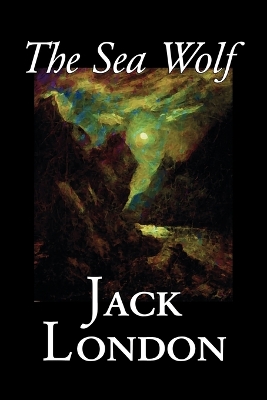
brokentune
Written on Apr 2, 2016
I remember watching the tv adaptation of Jack London's The Sea-Wolf with my gran, but all I remember are images of sails and the ocean. I don't remember anything of the story from that time. So, when The Sea-Wolf came up as a buddy read, I jumped right on it.
The story is told by Humphrey van Weyden, a wannabe author and self-professed gentleman, who is shipwrecked and picked up by the crew of The Ghost and their Captain - Wolf Larsen. Contrary to Humphrey's (Hump's) expectations, he is not set ashore but is Shanghaied by Larsen, who is short of crew and short of time.
While on board, Hump transforms from a man of thought into a man of action, while witnessing the brutality of life at sea and especially the brutality of The Sea-Wolf, Captain Larsen.
“Wolf - tis what he is. He's not blackhearted like some men. 'Tis no heart he has at all.”
It's an interesting book in which London explores human motivation and philosophises about the meaning of life and the value that society attaches to one profession over another. It is not always easy to follow, London's train of thought, however, and it is not at all clear whether some of the views are the author's own.
In some ways, I was reminded of Verne's 20,000 Leagues under the Sea, with its anti-hero Captain Nemo, whose disdain for human society somewhat parallels that of Larsen - except that Nemo had reason that are more relatable than those of Larsen.
The Sea-Wolf remains a mystery until the end.
Despite this, tho, the story works - even as just a simple story of adventure.
The only aspect that really grated on me was that London felt it necessary to add an element of romance into the adventure and side Hump with a lady journalist, who he falls in love with. This is not the grating bit. The grating bit is that she's a pretty strong character and her falling for Hump - who is a patronising wimp - is pretty unlikely. It's Hump's interaction with the lady journalist and his description of her as feeble and weak, even though she does more than her fair share of manual labour on the ship, that really made me want to kick him over-board.
“You are one with a crowd of men who have made what they call a government, who are masters of all the other men, and who eat the food the other men get and would like to eat themselves. You wear the warm clothes. They made the clothes, but they shiver in rags and ask you, the lawyer, or business agent who handles your money, for a job.
'But that is beside the matter,' I cried.
Not at all. It is piggishness and it is life. Of what use or sense is an immortality of piggishness? What is the end? What is it all about? You have made no food. Yet the food you have eaten or wasted might have saved the lives of a score of wretches who made the food but did not eat it. What immortal end did you serve? Or did they?”
